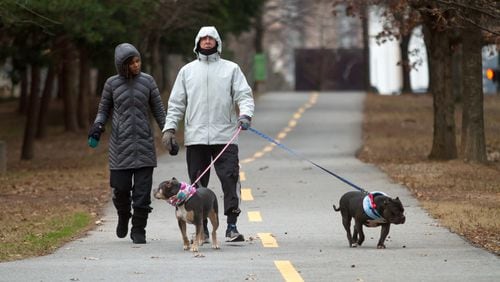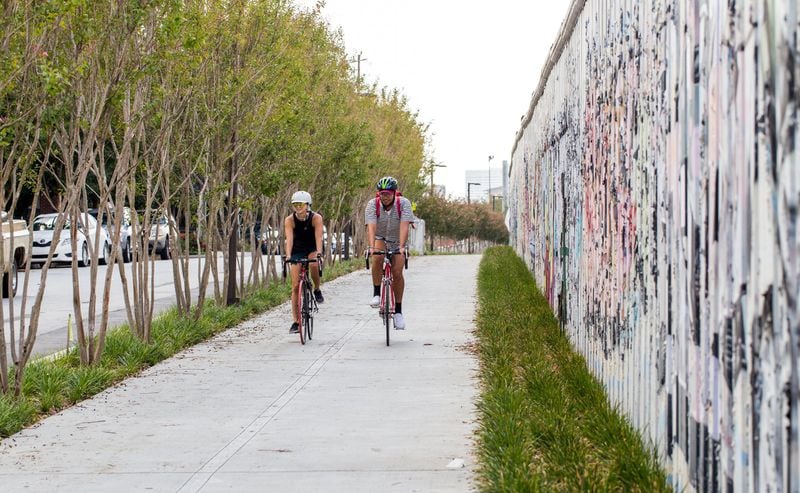UPDATE: The proposal failed to pass before the end of this year's legislative session.
READ | What bills passed and failed at the Georgia Capitol?
ORIGINAL STORY (published March 20): A self-taxing district designed to help complete the Atlanta Beltline could be created under a bill that passed a Georgia Senate committee Tuesday.
The Senate Economic Development and Tourism Committee sent House Bill 642 to the Rules committee for a possible a vote during the final week of the session. The measure already passed the House with a 163-7 vote on Feb. 28.
Conversationally known as the “Beltline bill,” the legislation would allow commercial property and apartment building owners along the Beltline to tax themselves through a special improvement district (SID). The added levy would provide an estimated $100 million for construction on upcoming trail segments and would fund “supplemental services” such as design, acquisition and trail improvement.
The committee voted 9-2 to pass the bill, with Sen. Brandon Beach, R-Alpharetta, and Sen. Tonya Anderson, D-Lithonia, dissenting. Beach said he was concerned that property owners wouldn’t have protections through a governing board, like they do with Community Improvement Districts.
READ | Beltline's godfather worries about transit-less future for project
READ | GOP candidates slam Cagle over medical marijuana expansion
Boosting funds through a self-tax district — which would be separate from the existing Beltline Tax Allocation District that committed 15 percent of its bonds to affordable housing — is something the Beltline has weighed for years. The bill has undergone multiple drafts since it was initially introduced by Rep. Chad Nimmer, R-Blackshear.
Neill Herring, lobbyist for the Georgia branch of the Sierra Club, told the committee he was disappointed that a mention of funds for affordable housing, which was removed from the original version of the legislation, was not added back.
“We would really strongly encourage making sure that the affordable housing component is addressed either now or in subsequent legislation,” Herring said. “Right now it’s an agreement between the landlords and the bankers, and it’s supposed to be an agreement between the community and its government.”
Rob Brawner, executive director of the Atlanta Beltline Partnership — the nonprofit that helps raise funds for Atlanta Beltline, Inc. — said there’s nothing in the bill that weakens the organization’s affordable housing policies. Instead, he said, it reflects the intent of property owners to tax themselves in order to get the 22-mile trail completed.
“I think this is something that is good for the Beltline, and the city, and I certainly hope that others see it that way,” he told The Atlanta Journal-Constitution after the bill passed the House.
Concerns about gentrification and a lack of affordable housing due in part to the Beltline's success has plagued many residents in recent years. Housing and other equity issues prompted Beltline creator Ryan Gravel to resign from the Atlanta Beltline Partnership board in 2016.
In July, an investigation by the Georgia News Lab and The Atlanta Journal-Constitution found that the Beltline was not on track to reach its 2030 goal to create at least 5,600 affordable houses and apartments. CEO Paul Morris stepped down from his post a month later, and was eventually replaced by Brian McGowan.
Watch the full Senate Economic Development and Tourism Committee meeting here.
Like Intown Atlanta News Now on Facebook | Follow us on Twitter







